Timeline : Landmark Legal Cases
Connie Francis, who was one of the biggest stars of the '60s, is attacked in her Howard Johnson's hotel room and raped at knifepoint. Devastated by the attack, she doesn't perform for another seven years. Two years later, she is awarded more than $2 million in her lawsuit against the hotel chain.
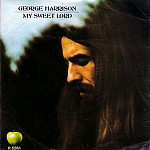 George Harrison is found guilty of "subconscious plagiarism" in a bizarre lawsuit that leaves songwriters baffled.More
George Harrison is found guilty of "subconscious plagiarism" in a bizarre lawsuit that leaves songwriters baffled.More
The YMCA files a lawsuit against Village People for their hit single "Y.M.C.A.," claiming the song is defaming to the organization. The suit is not only dropped, but the Y.M.C.A. adopts the song as their nonofficial commercial jingle after seeing the huge popularity boost the group brings them. Later, the US Navy recruits Village People to try to work similar magic for Navy recruitment.
Nike begins airing a commercial using the Beatles song "Revolution," marking the first time an original version of a Beatles song is used in an ad.More
With the jury deadlocked, a judge declares a mistrial in the case against Dead Kennedys frontman Jello Biafra, who was charged with distributing harmful material to minors because he included a surreal poster of penis art in the band's 1985 album Frankenchrist - the first time a musician has been prosecuted for album art. The trial is a costly one for the Dead Kennedys, who break up soon after.
Bette Midler is awarded $400,000 in her lawsuit against the Ford Motor Company, which had her former backing singer Ula Hedwig sing Midler's hit "Do You Want To Dance" in a 1985 commercial for the Mercury Sable. The verdict means that companies can't purposely imitate the vocals of a famous singer in advertisements without consent.
A jury orders Frito-Lay to pay the famously anti-advertising Tom Waits $2.6 million for imitating his voice in a Doritos radio commercial that transforms his song "Step Right Up" into an ad for their SalsaRio flavor chips. In 1992, the verdict is upheld on appeal.
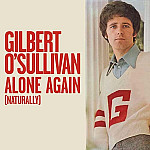 A judge rules in favor of the British singer-songwriter Gilbert O'Sullivan in his case against the rapper Biz Markie, who sampled Sullivan's song "Alone Again (Naturally)" without permission. The landmark case establishes that samples must be cleared before they are used.More
A judge rules in favor of the British singer-songwriter Gilbert O'Sullivan in his case against the rapper Biz Markie, who sampled Sullivan's song "Alone Again (Naturally)" without permission. The landmark case establishes that samples must be cleared before they are used.More
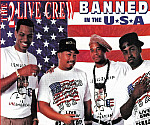 The Supreme Court rules that parody constitutes fair use in deciding that 2 Live Crew's version of Roy Orbison's "(Oh) Pretty Woman" (where the woman is now big and hairy) is legal.More
The Supreme Court rules that parody constitutes fair use in deciding that 2 Live Crew's version of Roy Orbison's "(Oh) Pretty Woman" (where the woman is now big and hairy) is legal.More
 A jury rules that Michael Bolton's 1991 hit "Love Is a Wonderful Thing" plagiarizes The Isley Brothers 1966 song of the same name and awards $5.4 million in damages, the largest ever in a music plagiarism case.More
A jury rules that Michael Bolton's 1991 hit "Love Is a Wonderful Thing" plagiarizes The Isley Brothers 1966 song of the same name and awards $5.4 million in damages, the largest ever in a music plagiarism case.More
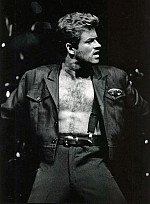 A judge rules against George Michael in his lawsuit against his record label, Sony, derailing his music career for two years.More
A judge rules against George Michael in his lawsuit against his record label, Sony, derailing his music career for two years.More
A class action lawsuit is filed against the major record labels, claiming that they kept CD prices high by punishing retailers who sold the discs for less than their "minimum advertised price." The case was eventually settled for $143 million, with 3.48 million claimants who bought CDs between January 1, 1995 and December 22, 2000 receiving checks for $13.86.
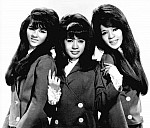 The Ronettes lose their case against Phil Spector, claiming they are owed royalties for songs used in movies, TV shows and commercials.More
The Ronettes lose their case against Phil Spector, claiming they are owed royalties for songs used in movies, TV shows and commercials.More
Levon Helm of The Band sues the ad agency BBDO for using the song "The Weight" in a commercial without his permission.More
 Jammie Thomas-Rasset, a 32-year-old woman from Minnesota, is found guilty of illegal sharing of music files via the Internet and is ordered to pay $1.92 million, $80,000 per song.More
Jammie Thomas-Rasset, a 32-year-old woman from Minnesota, is found guilty of illegal sharing of music files via the Internet and is ordered to pay $1.92 million, $80,000 per song.More
A judge rules that the flute riff of the Men at Work song "Down Under" plagiarizes another Australian classic: the 1932 song "Kookaburra."More
Jake Holmes finally gets around to suing Led Zeppelin for plagiarizing his 1967 song "Dazed And Confused." Led Zeppelin released a very similar song with the same title on their 1969 debut album, but Holmes waited decades to take legal action. The case is eventually settled, with the writing credit on the song changed to "Jimmy Page, Inspired By Jake Holmes."
After winning a landmark lawsuit, The Village People lead singer Victor Willis regains the copyright to 33 songs he co-wrote for the band. Willis is the first songwriter to go public with his case, which deals with a 1978 law that reverts copyrights to songs back to their original owners 35 years after. Like many songwriters, Willis had signed away the rights to his songs.
 A jury awards Marvin Gaye's estate (his children Marvin III, Frankie and Nona) $7.3 million, finding that the Robin Thicke song "Blurred Lines" is too similar to Gaye's 1977 hit "Got To Give It Up."More
A jury awards Marvin Gaye's estate (his children Marvin III, Frankie and Nona) $7.3 million, finding that the Robin Thicke song "Blurred Lines" is too similar to Gaye's 1977 hit "Got To Give It Up."More
 The "Happy Birthday" copyright is ruled invalid, putting the song into the public domain.More
The "Happy Birthday" copyright is ruled invalid, putting the song into the public domain.More
After a trial in which the three living members of Led Zeppelin testified, a jury rules that they are not guilty of plagiarizing the intro of "Stairway To Heaven" from the 1968 song "Taurus" by the band Spirit. In 2018, the case is sent back to trial on a technicality, but is upheld in a 2020 ruling.
A federal judge rules in favor of Katy Perry, overturning a verdict that her song "Dark Horse" infringed on the song "Joyful Noise" by Flame. The jury had ordered $2.78 million in damages.
An appellate court upholds a 2016 ruling that Led Zeppelin's "Stairway To Heaven" did not infringe on the Spirit song "Taurus," bringing an end to the lawsuit that was filed in 2014. The court also overturns the "inverse ratio rule," which sets a lower standard for infringement based on how much access a defendant had to a song.
©2024 Songfacts®, LLC
